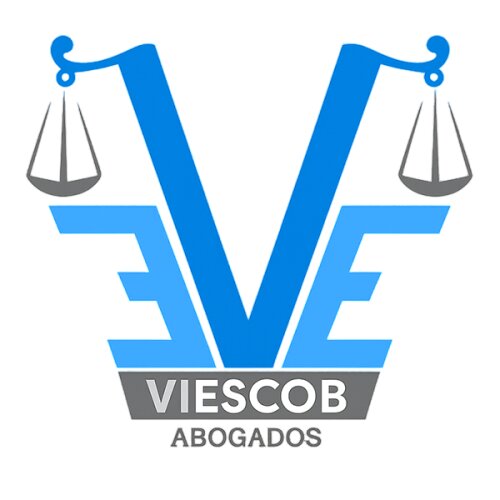Best Appeal Lawyers in Providencia
Share your needs with us, get contacted by law firms.
Free. Takes 2 min.
List of the best lawyers in Providencia, Chile
About Appeal Law in Providencia, Chile
Appeal law in Providencia, Chile refers to the legal procedures that allow individuals or organizations to seek a review of a decision rendered by a court or administrative authority. Providencia, a key commune in Santiago, follows Chilean law, which provides specific pathways for appealing various decisions - whether civil, criminal, labor, or administrative. The purpose of the appeals process is to ensure that parties can challenge rulings they believe are incorrect or unjust, and to promote fairness in the judicial system. Appeals are typically handled by higher courts, such as the Court of Appeals located in Santiago.
Why You May Need a Lawyer
Navigating the appeals process in Providencia presents unique challenges due to the formalities and stringent deadlines involved. Common situations where people may require legal help with appeals include:
- Receiving an unfavorable judgment in a family, civil, criminal, or labor court case.
- Contesting a decision from an administrative body, such as fines or sanctions from municipal authorities.
- Challenging the actions of public officials that may affect your rights or interests.
- Seeking higher compensation or reduced liability in personal injury or contractual disputes.
- Addressing allegations of due process violations in earlier proceedings.
A qualified lawyer helps ensure your appeal is filed correctly, with appropriate grounds and supporting evidence, and represents your interests during hearings or negotiations.
Local Laws Overview
Chilean law stipulates clear procedures for filing appeals, known locally as "recursos". Some of the most common appellate remedies available in Providencia include:
- Recurso de Apelación: This is the standard appeal against a judgment or order and must typically be filed within a specific timeframe (commonly 5 or 10 days depending on the matter).
- Recurso de Protección: A special remedy to protect constitutional rights when they are threatened by acts or omissions by authorities or individuals.
- Recurso de Amparo: Used primarily for the protection of personal freedom and safety.
- Recurso de Casación: An exceptional remedy to annul judgments based on misapplication of law or procedure.
The Court of Appeals of Santiago, which has jurisdiction over Providencia, handles the majority of these appeals. Each type of appeal has strict filing requirements, and missing a deadline or procedural step can result in dismissal of the appeal.
Frequently Asked Questions
What is the deadline for filing an appeal in Providencia?
The deadline depends on the type of case and tribunal. Civil and criminal cases typically require filing within 5 or 10 working days from notification of the resolution or judgment.
Can I appeal any court decision?
No, not all decisions are appealable. Some orders are final or only subject to special remedies. Your lawyer can help determine if your case qualifies for appeal.
How do I know which type of appeal to use?
The specifics of your case and the legal rights involved determine the appropriate remedy. Legal counsel will analyze your situation and recommend the best option.
What happens after I file an appeal?
The higher court will review the documentation, may schedule a hearing, and eventually render a decision affirming, reversing, or modifying the original judgment.
How long does the appeal process take?
It varies by case complexity and court workload, but appeals in Providencia can take several months to over a year.
Can I submit new evidence in an appeal?
Generally, appeals are based on the same evidence presented at the original trial. However, in exceptional cases, new evidence may be accepted if it was previously unavailable.
Who decides my appeal in Providencia?
Most appeals are decided by panels of judges at the Court of Appeals of Santiago, which serves the Providencia area.
Is there a cost to file an appeal?
Yes, there are filing fees, and additional costs may include attorney fees and charges for obtaining necessary documentation.
Do I have to appear in court during the appeal?
Often, written submissions suffice, but the court may summon parties for oral arguments or additional clarifications.
What can I do if my appeal is unsuccessful?
Depending on the case, you may have further remedies, such as a recurso de casación to the Supreme Court, or, in some instances, recourse to constitutional protections or international bodies.
Additional Resources
For those seeking assistance with appeals in Providencia, the following resources may be helpful:
- Court of Appeals of Santiago: The principal court handling appellate cases for Providencia.
- Judiciary of Chile (Poder Judicial): Provides guides, online services and case tracking.
- Corporación de Asistencia Judicial: Offers free or low-cost legal aid to those who qualify.
- Municipality of Providencia: Offers citizen support and legal orientation programs.
- Collegio de Abogados de Chile: Registry of licensed lawyers and lawyer referral services.
Next Steps
If you believe you need to file an appeal in Providencia, it is essential to act quickly due to strict deadlines. Here is how to proceed:
- Gather all relevant documents, such as judgments, notifications, and evidence from your original case.
- Consult with a qualified lawyer who has experience with appeals in Providencia to evaluate your case and advise on the best course of action.
- Determine which type of appeal or remedy is appropriate based on your legal situation.
- File the necessary documents with the correct court or administrative authority within the prescribed deadline.
- Follow your lawyer's guidance throughout the process, attend hearings if required, and ensure all procedural requirements are met.
Taking timely legal action maximizes your chances of a successful appeal. If you need help, do not hesitate to seek professional legal advice tailored to your specific case in Providencia, Chile.
Lawzana helps you find the best lawyers and law firms in Providencia through a curated and pre-screened list of qualified legal professionals. Our platform offers rankings and detailed profiles of attorneys and law firms, allowing you to compare based on practice areas, including Appeal, experience, and client feedback.
Each profile includes a description of the firm's areas of practice, client reviews, team members and partners, year of establishment, spoken languages, office locations, contact information, social media presence, and any published articles or resources. Most firms on our platform speak English and are experienced in both local and international legal matters.
Get a quote from top-rated law firms in Providencia, Chile — quickly, securely, and without unnecessary hassle.
Disclaimer:
The information provided on this page is for general informational purposes only and does not constitute legal advice. While we strive to ensure the accuracy and relevance of the content, legal information may change over time, and interpretations of the law can vary. You should always consult with a qualified legal professional for advice specific to your situation.
We disclaim all liability for actions taken or not taken based on the content of this page. If you believe any information is incorrect or outdated, please contact us, and we will review and update it where appropriate.













